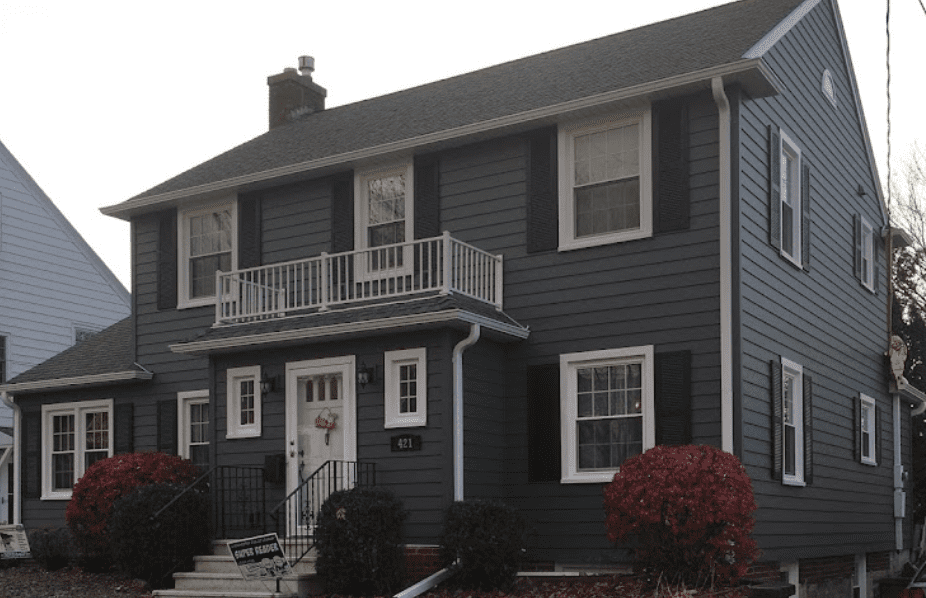
Roof repairs are essential for maintaining your home’s safety and longevity. Knowing the best time of year to schedule these repairs can significantly improve the quality and cost of the work. Seasonal weather patterns impact the materials and methods used during roof repairs, making choosing the right time for this essential maintenance necessary. In this blog, explore the advantages and challenges of each season for roof repairs, helping you make the most informed decision for your home.
Best Roof Repairs for Each SeasonÂ
Timing your roof repairs is crucial for ensuring the work is effective, durable, and cost-efficient. Each season presents its opportunities and challenges when it comes to roofing work, and choosing the right time can make a big difference in the quality of the results. Understanding how the changing weather impacts roof repairs can help you decide when to schedule this important maintenance. Here, we’ll explore the pros and cons of scheduling roof repairs during each of the four seasons so you can plan the best time for your home’s needs:
1. Spring Roof Repairs
Spring is ideal for roof repairs due to mild temperatures and generally stable weather conditions. This season allows contractors to inspect the roof for any damage caused by winter storms, such as cracked shingles or leaks. Repairing these issues in spring prepares your roof for the heavy rains that often come with summer. The cooler temperatures also provide a comfortable working environment, making it easier for roofers to complete the job efficiently.
2. Summer Roof Repairs
Summer offers the opportunity for major roof repairs, especially for those requiring extensive work like shingle replacements. The warm weather allows roofing materials to adhere appropriately, ensuring a strong and long-lasting repair. However, the high temperatures can make the work challenging, especially during midday when the sun is most intense. It’s best to schedule repairs for early mornings or late afternoons to avoid the heat, ensuring a smooth and effective installation.
3. Fall Roof Repairs
Many homeowners and contractors consider fall the best time for roof repairs, thanks to its cool and dry conditions. The moderate temperatures allow materials to seal properly, ensuring a durable repair before winter. Fall repairs prepare your roof to handle snow, ice, and harsh winds, reducing the risk of leaks during the colder months. With its ideal conditions, fall ensures your roof is in top shape before winter weather arrives.
4. Winter Roof Repairs
Winter is the most challenging season for roof repairs due to freezing temperatures and snow. Cold weather can make some roofing materials brittle, making it harder to achieve a secure installation. However, emergency repairs, such as fixing leaks or damage caused by snow and ice, are sometimes unavoidable. In such cases, working with a contractor experienced in winter roof repairs can ensure the work is done safely and effectively despite the challenging conditions.
Timing Your Roof Repairs for Maximum Benefit
Choosing the right season for roof repairs is essential for ensuring the work’s quality, durability, and cost-effectiveness. Spring and fall are ideal for most repairs due to their mild weather, while summer is better suited for major projects that require stable conditions. Winter, though challenging, may be necessary for urgent fixes. By understanding the benefits and drawbacks of each season, you can make an informed decision that keeps your roof in optimal condition year-round, protecting your home and ensuring long-term peace of mind.
 Common Mistakes in Roof Repair Scheduling
Common Mistakes in Roof Repair Scheduling
While understanding the best seasons for roof repairs is crucial, knowing how to schedule them effectively is just as important because it affects the process. Even with the ideal timing, inevitable planning mistakes can undermine the benefits of seasonal advantages, leading to delays, added costs, or suboptimal results. Avoiding these common pitfalls is essential to ensure your roof repairs are carried out smoothly and successfully. Below are the most frequent mistakes homeowners make when scheduling roof repairs and how to plan better for the best outcomes.
Overlooking Seasonal Weather Patterns in Roof Repairs
One common mistake when scheduling roof repairs is neglecting the impact of seasonal weather patterns. Scheduling work during a season with frequent rain or snow can delay the project and reduce the quality of the repairs. For example, attempting major repairs during the rainy spring season can make it difficult for materials to seal properly. Understanding the typical weather patterns in your area helps you choose a time when conditions are most stable, ensuring better results.
Waiting Too Long for Roof Repairs
Another frequent mistake is waiting too long to address roof repairs, which can lead to more significant damage and higher costs. Delaying repairs allows small issues, like missing shingles or minor leaks, to worsen over time, potentially compromising the structural integrity of your roof. Addressing problems promptly, especially during favorable weather conditions, can prevent the need for more extensive repairs. Timely intervention saves money and protects your home from further damage.
Focusing Only on Cost When Scheduling Roof Repairs
While budgeting is crucial, focusing solely on finding the lowest cost can be a mistake when scheduling roof repairs. Choosing the cheapest contractor without considering their experience or the quality of materials can result in subpar work that may require additional repairs. It’s crucial to balance affordability with the expertise of the contractor and the season’s suitability for the repair. Investing in quality materials and workmanship can extend the life of your repairs, making them more cost-effective in the long run.
Ignoring Contractor Availability for Roof Repairs
Failing to account for contractor availability is another common error that can delay roof repairs. During peak seasons like spring and fall, contractors are often booked weeks or months in advance, making it difficult to secure a convenient time slot. Waiting until the last minute to schedule repairs can limit your options and lead to rushed work. Planning ahead and booking earlier ensures you have access to a reputable contractor during the best time for your specific roof repair needs.
Avoiding Mistakes for Successful Roof Repairs
While understanding the best seasons for roof repairs is crucial, knowing how to schedule these repairs effectively is just as important. Even with the ideal timing, inevitable mistakes in planning can undermine the benefits of seasonal advantages, leading to delays, added costs, or suboptimal results. Avoiding common errors in scheduling roof repairs ensures a smooth process and durable results. By considering seasonal weather conditions, addressing issues as soon as they arise, and not just focusing on cost, you can make more informed decisions that benefit your roof in the long run. Additionally, planning to secure a reputable contractor during the optimal time is a key step in ensuring a successful repair. A reputable contractor can provide the expertise and reliability you need, giving you the confidence that your roof will be repaired correctly and on schedule. A thoughtful approach to roof repairs can protect your home, save money, and provide peace of mind throughout the year.
Why Is Timing Important for Roof Repairs?
The timing of roof repairs is critical in ensuring that the work is done effectively and lasts for years to come. Choosing the right repair time can prevent weather-related complications, contractor availability, and material performance. Timing affects the quality of the repairs and how long they will hold up under varying weather conditions—understanding why timing matters can help homeowners plan their roof repairs for the best possible results.
Unfavorable Weather Conditions Complicate Roof Repairs
Weather conditions directly affect the outcome of roof repairs, making timing an essential consideration. Scheduling repairs during wet or snowy seasons can delay work and compromise sealing, leading to leaks or premature wear. Dry, mild conditions, such as those in spring and fall, allow materials to bond better, creating a longer-lasting repair. Homeowners can ensure their roof repairs are more durable and effective by choosing the right time based on weather patterns.
Material Performance Depends on Timing for Roof Repairs
The performance of roofing materials can also be affected by the timing of the repairs. Extreme temperatures can cause some materials to expand or contract, making installing them more challenging. For example, asphalt shingles are easier to work with in moderate temperatures, ensuring they adhere properly to the roof. Choosing the right season helps ensure that materials perform optimally during installation, which can extend the lifespan of your roof repairs.
Timing Affects Contractor Availability for Roof Repairs
Another reason timing is crucial for roof repairs is the availability of qualified contractors. During peak seasons like spring and fall, contractors are often in high demand, making it more difficult to secure appointments. Booking roof repairs during off-peak times, such as early spring or late fall, can provide more scheduling flexibility and sometimes lower costs. Planning your repairs around contractor availability ensures that you have the best professionals working on your project when conditions are ideal.
Proactive Roof Repairs Prevent Costly Emergencies and Damage
Proactively timing your roof repairs can help you avoid emergencies during harsh weather conditions. Addressing minor issues during favorable weather can prevent them from becoming major problems when rain, snow, or storms hit. This approach saves money by avoiding urgent repairs and protects your home from water damage or structural issues. Proper timing ensures that your roof is ready to face the elements without the risk of sudden failures.
 Choosing the Right Time for Each of Your Roof RepairsÂ
Choosing the Right Time for Each of Your Roof RepairsÂ
Choosing the right time for roof repairs is essential for ensuring the work is completed efficiently and to a high standard. Weather conditions, material performance, and contractor availability all depend on the timing of the repairs, impacting the work’s quality and durability. By scheduling repairs at the right time, homeowners can avoid emergency fixes, save money, and extend the lifespan of their roofs. A well-timed approach to roof repairs is vital to maintaining a safe and resilient home.Â
Discover how to keep your roof in top condition and make the best decisions for your home. For expert advice and roof repair tips, visit our Minnesota’s 1st Choice blog.Â


 Common Mistakes in Roof Repair Scheduling
Common Mistakes in Roof Repair Scheduling Choosing the Right Time for Each of Your Roof RepairsÂ
Choosing the Right Time for Each of Your Roof RepairsÂ